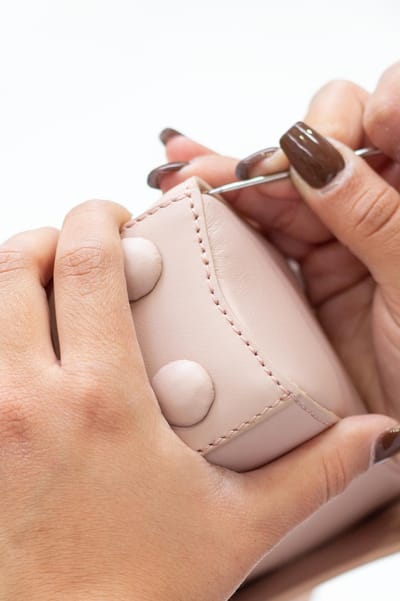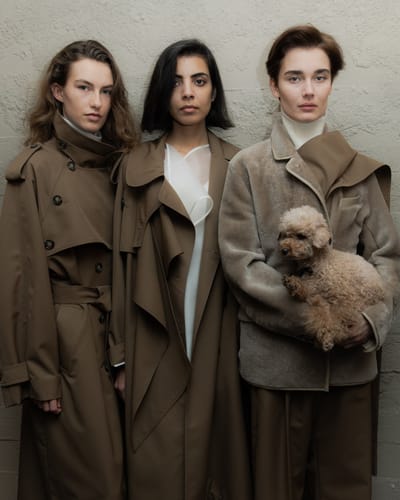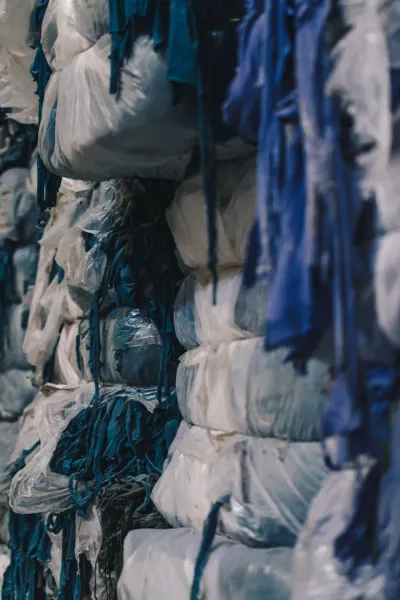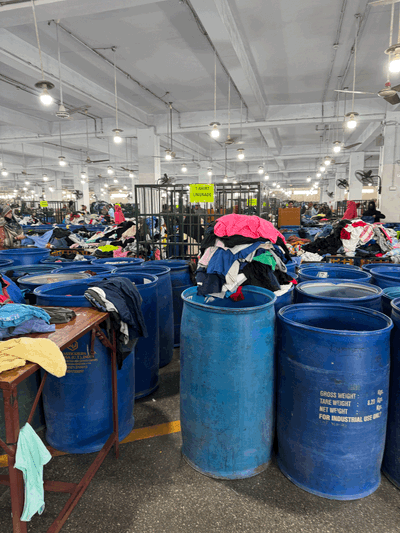SYLK was founded in 2016 by Dexter Burgess-Hunt and his partner Sophy Grattidge, driven by their mutual love for thrifting. "It started from a love of thrifting," Burgess-Hunt shares. "From a young age, we both loved the thrill of digging through vintage stores and charity shops, finding the perfect piece that no one else had. We were often finding ourselves coming across really cool pieces but not having a place for it in our own wardrobe, so it naturally evolved slowly as a small hobby into a full-time business. It was ideal really as it meant we had a purpose to go thrifting more often, which is the part we love the most."
SYLK’s beginnings were humble, selling vintage finds out of their London bedrooms. "We were selling out of our bedrooms for years at first," Burgess-Hunt recalls. "In London, we were between two tiny bedrooms, and it was a lot. When we relocated back to Manchester in 2019, we decided it was finally time to invest in a studio as working between our flats and having so much stock everywhere wasn’t ideal," Burgess-Hunt says. "We started small with a shipping container in Pollard Yard, Ancoats, which was great. We loved being surrounded by other small businesses and meeting like-minded people."


Their first studio was a shipping container, but their dream was always to operate out of a warehouse with big windows. "But we had always had our hearts set on a warehouse-type space with big windows, and after three years in Pollard Yard and going full-time with the business, we knew it was time to look for a bigger space. It took over a year of viewing potential studios, but we came across the space we’re in now and instantly fell in love with it."
"When we started, there was no clear vision or strong sense of brand identity," Burgess-Hunt admits. The couple's evolving personal style began to shape SYLK's offerings. They focused on minimal, high-quality pieces, with oversized men’s blazers being their first major hit.
"As our own personal style evolved, we found ourselves buying more minimal pieces in neutral colours, and it was really working for us. I think oversized men’s blazers were the first big thing we started focusing on. There weren’t many sellers selling what we were at the time, so I think that’s why we did so well."
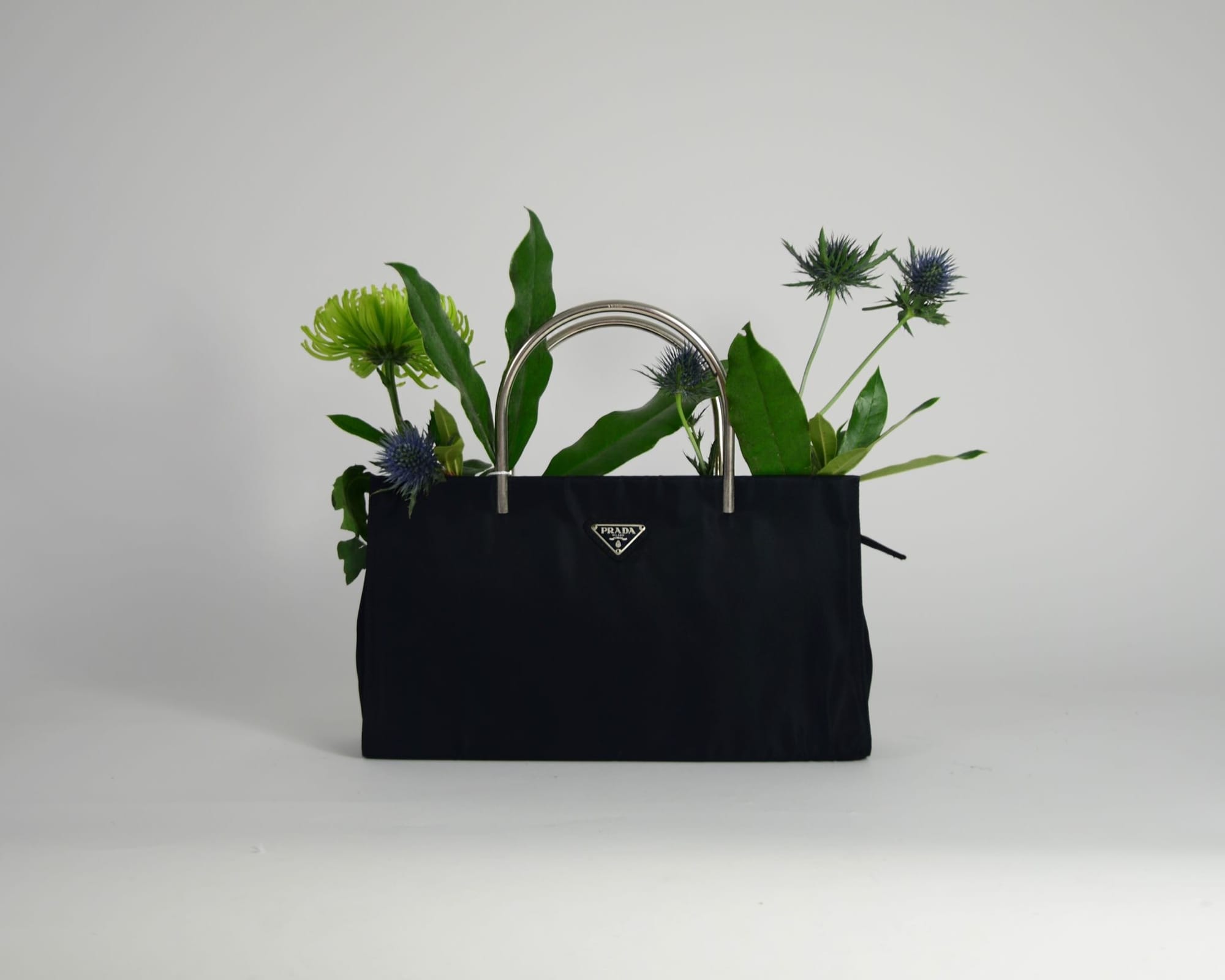
This focus on timeless, staple pieces resonated with their customers. "Once we started buying more pieces we would wear over random or trend-led pieces, and the store had more of a sense of style, that’s when we saw the most growth," Burgess-Hunt notes.
SYLK's commitment to sustainability is inherent in its business model. "Being a vintage brand over manufacturing new clothing is already a huge sustainability practice for us as you are cutting out a lot of the harsh manufacturing processes that affect the environment and resources," Burgess-Hunt explains.
By selling pre-loved clothing, SYLK reduces the environmental impact of fast fashion and keeps clothes in circulation instead of in landfills. "You’re also keeping clothes in circulation instead of sending them to landfill, which has a massive impact on the planet. In addition to this, we also have biodegradable mail bags and 100% recyclable packaging materials."
The partnership with Circulaire Journal aligns perfectly with SYLK's ethos. "We love the ethos behind Circulaire and believe it would be such a perfect fit for SYLK to be in partnership," Burgess-Hunt says. "We really hope to spread more awareness of sustainable shopping and show more people that vintage can be styled in a contemporary way. We both have a similar goal to showcase vintage and sustainability at its best. We believe working with smaller businesses is only going to help us showcase each other’s amazing qualities."
Curating a minimalist wardrobe is central to SYLK's design philosophy. "When we are sourcing, we have a list of pieces we are looking for. These are key wardrobe staples, like white oversized shirts or simple tailoring," Burgess-Hunt explains.
They focus on pieces that can be styled multiple ways and prioritize quality over quantity. "Having a list helps us keep focused and makes curating our drops easier. We only buy pieces you can style multiple ways in your wardrobe. Things you will want to reach for day in and day out."
SYLK caters to customers who appreciate an oversized, relaxed look while maintaining versatility and personal style. "The beauty of vintage is that every piece is one of a kind, and we can constantly give our customers inspiration through new pieces and styling," Burgess-Hunt says. Their stock ranges across brands, sizes, and styles, offering something for everyone. "We try and cater to a wide range of customers by stocking a range of brands, sizes, and styles. This gives the customer options to buy vintage pieces that may fit into their wardrobe."
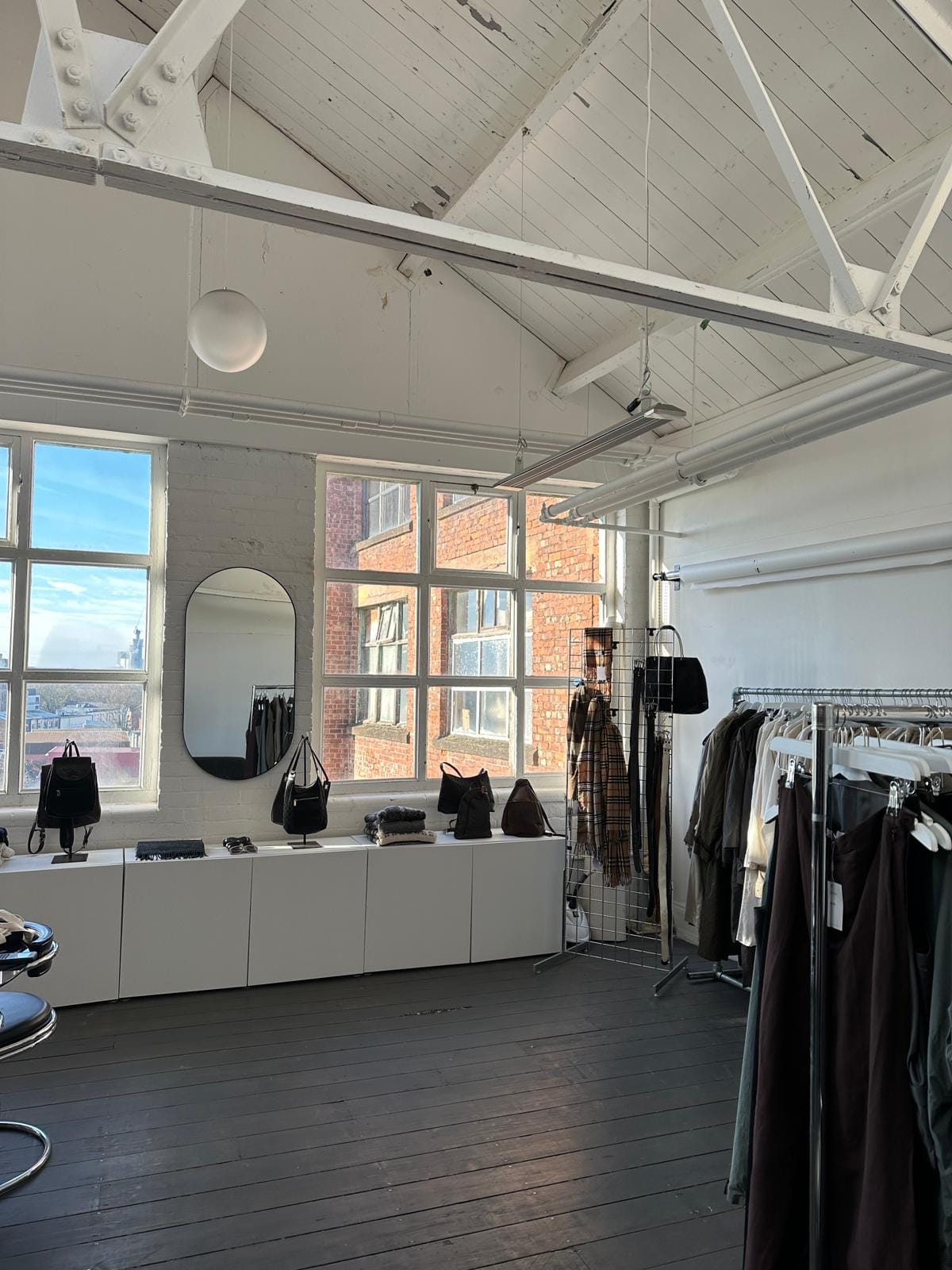
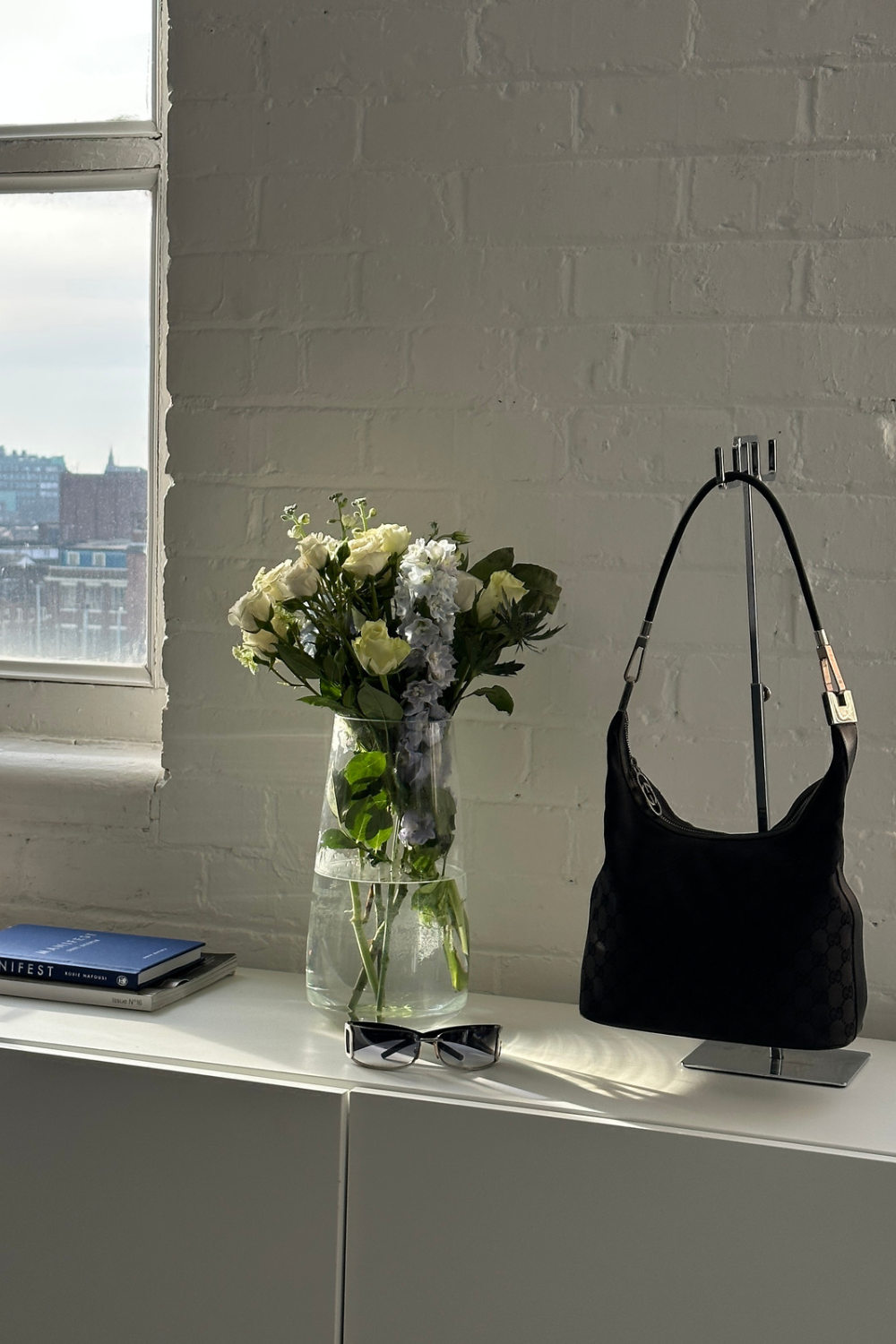
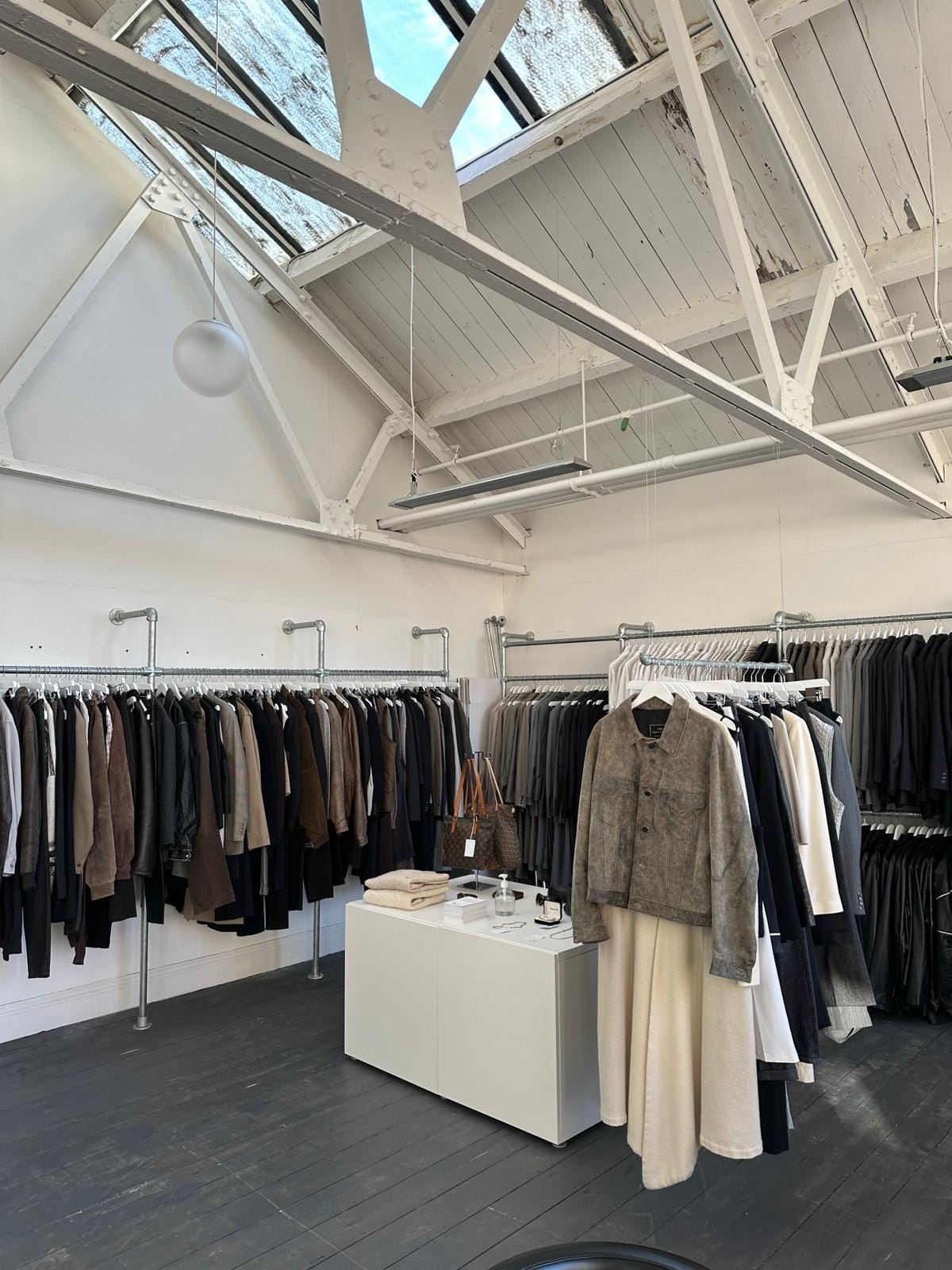
The brand also embraces gender-neutral fashion. "SYLK has always had an androgynous feel, and we have always styled men’s items as women’s," Burgess-Hunt explains. "We believe clothes don’t have a gender, but we feel it’s important to state who the clothes were originally designed for so customers have a better understanding of how this might fit their body."
SYLK distinguishes itself in the vintage clothing market by focusing on timeless, classic pieces rather than chasing trends. "I think what sets SYLK apart is that we are building a store that is focused on timeless, classic pieces. A lot of vintage stores focus on what style is trending or buying a lot of cheap wholesale items. These are both two things that don’t align with our store," Burgess-Hunt states. "Building a loyal customer base has also been pivotal for our brand. Our customer return rate is very high. We get a lot of compliments that people are really happy they’ve found us, that they’ve not seen another store like ours and that our pieces are so much nicer in person."
The quality of vintage clothing also sets SYLK apart. "With vintage pieces, you can very much tell the quality when you put it next to a modern piece. It sounds cliché, but they really don’t make clothes like they used to," Burgess-Hunt notes. The superior design and fabric quality of vintage pieces are evident when compared to modern fast fashion items. "That in itself helps hold the charm of vintage in our pieces, because you can spot that they are better made in the design and fabric quality."
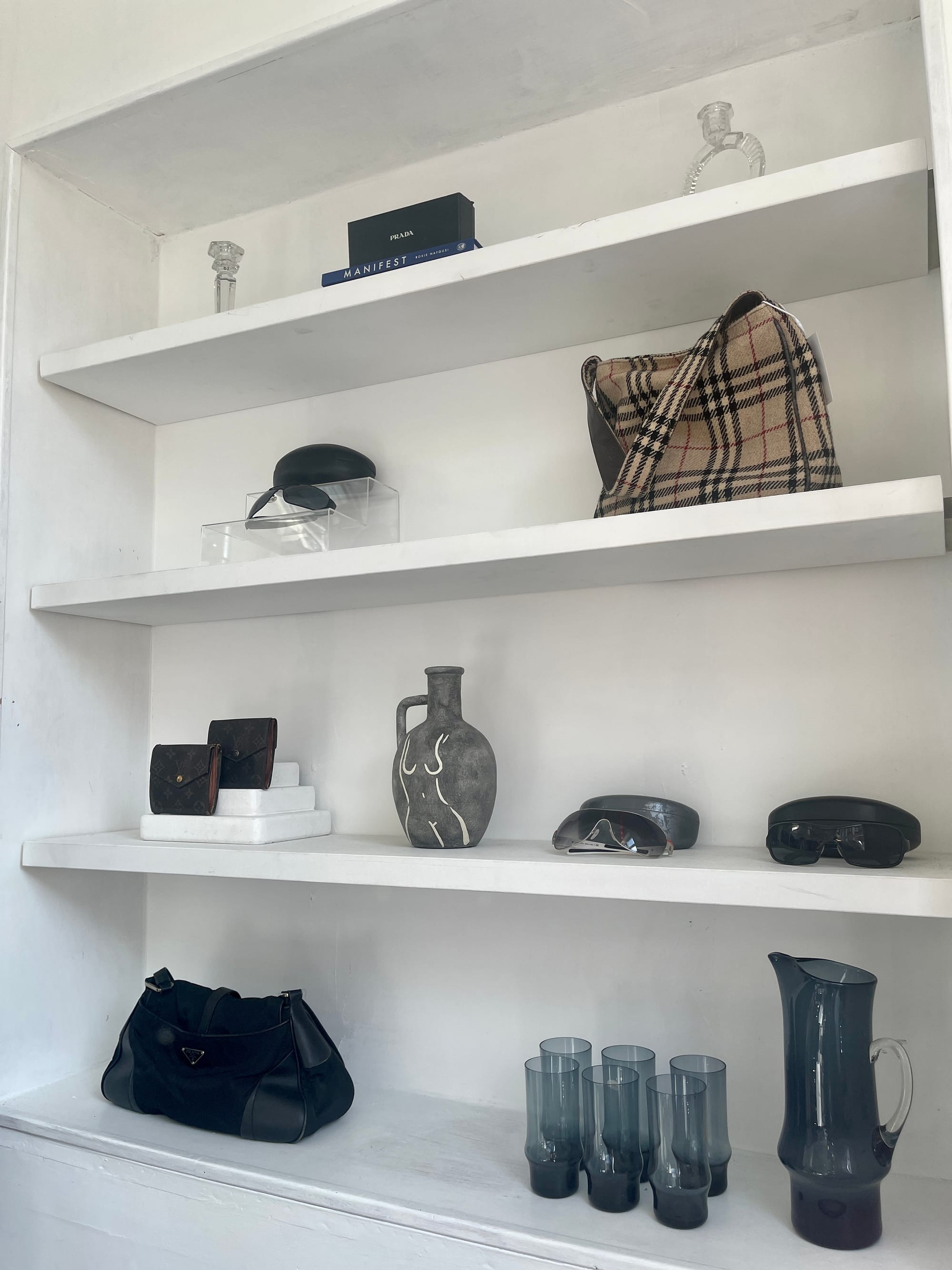
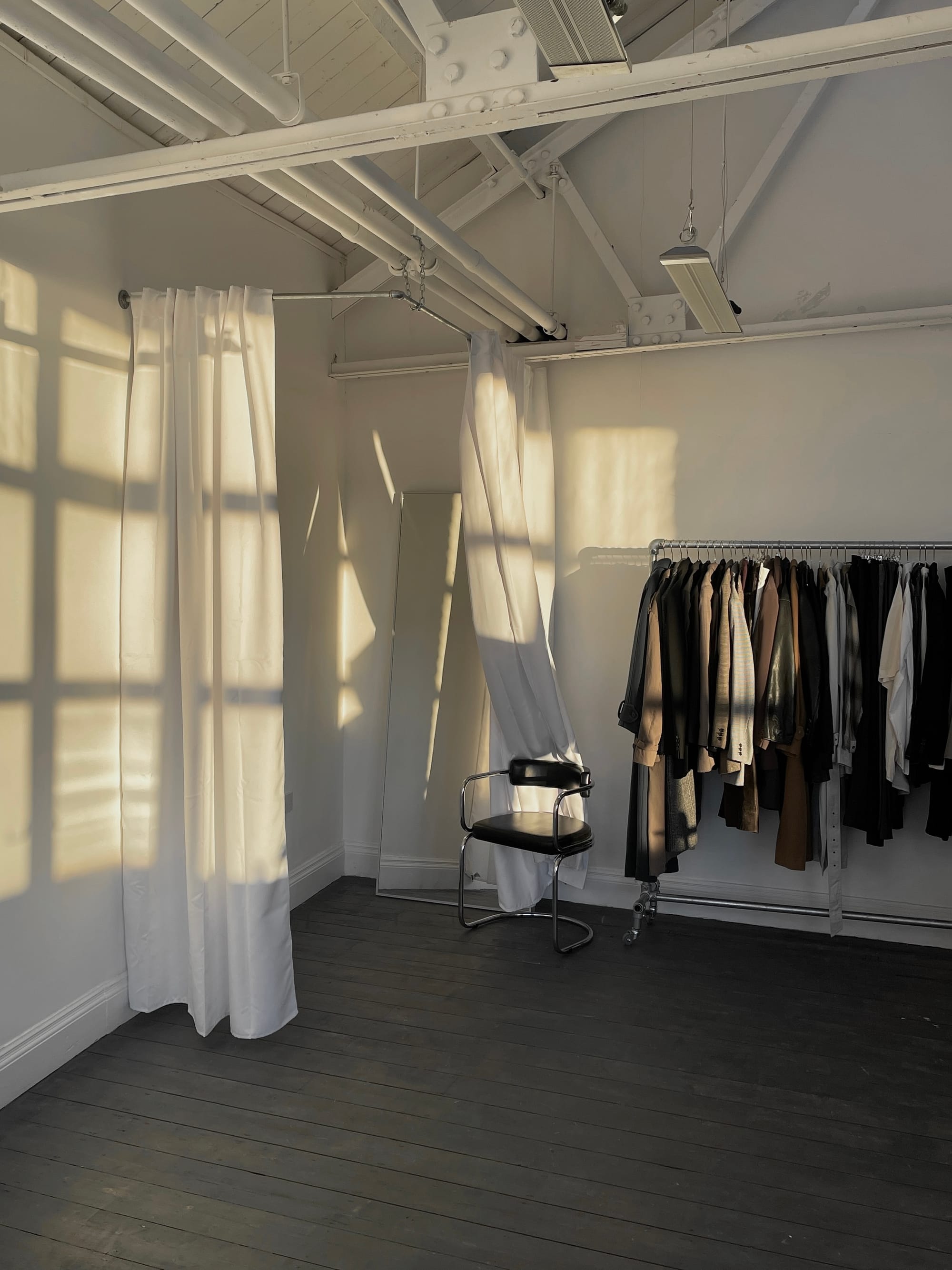
Engaging with their community of customers and supporters is a priority for SYLK. "We are constantly engaging with our customers via social media and people who shop with us in our studio and at events," Burgess-Hunt says. Feedback from their community helps shape the brand's direction, ensuring they meet customer needs and preferences. "Our customers give us so much feedback, and their voice and opinion is everything to us."
Looking ahead, SYLK aspires to continue growing while maintaining their sustainability practices. "We are hoping as our small business grows, we can continue to build on our sustainability practices and make this more of a focus," Burgess-Hunt shares.
They aim to spread awareness about the importance of shopping second-hand and caring for wardrobe items to extend their life cycle. "We would love to spread more awareness via social media with our customers about the truths of fast fashion, why shopping second-hand is so important, and ways they can care for the items in their wardrobe or repair them to extend their life cycle."
SYLK also has exciting projects in the works, although details are still under wraps. "We currently have a few projects in the works, but at the moment, these are all top secret! We can just say that you might be seeing us in London soon," Burgess-Hunt hints.
SYLK's partnership with Circulaire Journal is a significant milestone in their journey. It underscores their dedication to sustainable fashion and timeless style. As Burgess-Hunt and Sophy continue to evolve SYLK, their commitment to quality, sustainability, and community engagement will undoubtedly inspire and attract more vintage clothing enthusiasts.
For those looking to add unique, high-quality vintage pieces to their wardrobe while supporting sustainable practices, SYLK is a brand worth following. As Burgess-Hunt eloquently puts it, "Every time you choose to shop vintage over fast fashion, you are helping to reduce the amount of carbon, water, and waste footprints produced each year by the fashion industry."


